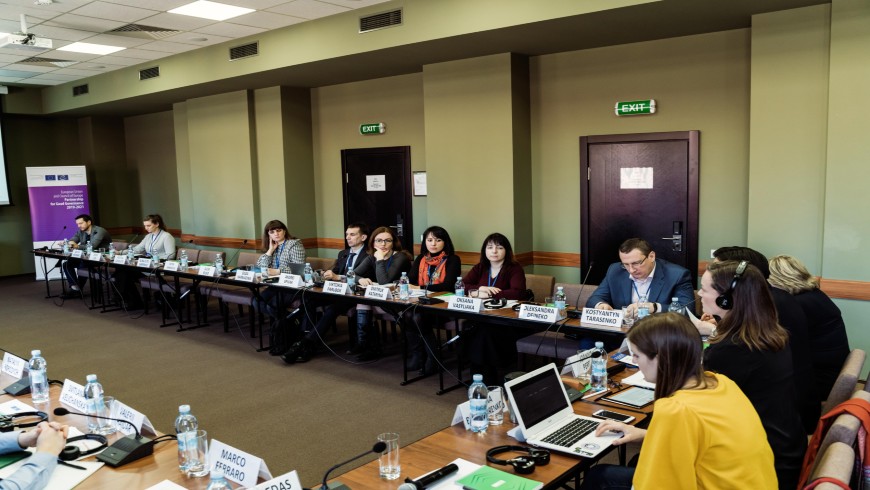On 3 March, the Council of Europe organised a meeting with representatives from state and non-state institutions in order to discuss progress in the collection of disaggregated data on cases of discrimination, hate crime and hate speech in Ukraine. Two Council of Europe experts presented a report and recommendations on how to improve collection of such data by state and non-state actors and unifying methodology of data collections which should be victim and outcomes focused.
The working meeting gathered the participants from the Office of the Ombudsperson of Ukraine, Ministry of Internal Affairs, National Police, Prosecutor’s Office, State Statistics Office, Coordination Center for Legal Aid Provision, and NGOs who discussed together the existing challenges in recording cases of discrimination, hate speech and hate crimes by different agencies and the opportunities for improving the collection of disaggregated data in Ukraine.
Participants have pointed out the need to clearly define the phenomena for data collection purposes and develop information exchange mechanisms and methodology that would help individual agencies collect better data on discrimination in their area of expertise. Suggestions for the next steps included, inter alia, an interagency mechanism for cases of discrimination and a referral mechanism to support those who report discrimination to law enforcement and direct them to the agencies that can provide assistance in such cases.
Participants agreed on future steps responding to the existing challenges in implementation of a unified collection of data on discrimination, hate crimes and hate speech in line with Council of Europe standards and practices.
The meeting was organised in the framework of the regional project “Strengthening access to justice through non-judiciary redress mechanisms for victims of discrimination, hate crime and hate speech in Eastern Partnership countries”, which is funded by the European Union and the Council of Europe, and implemented by the Council of Europe through the Partnership for Good Governance II programme.





